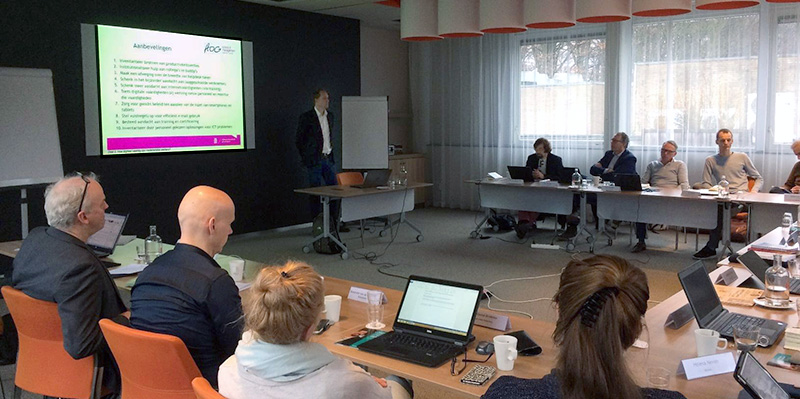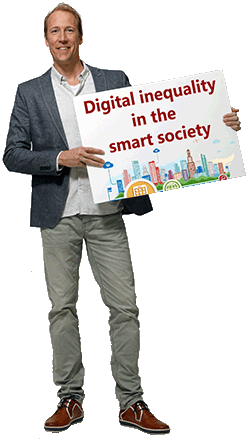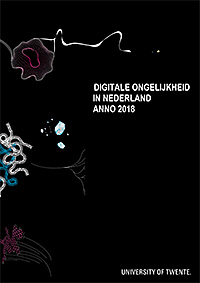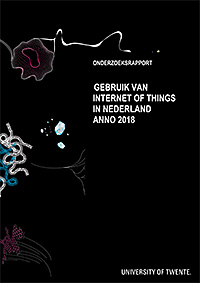As a professor and chair of the department of communication science at the University of Twente in the Netherlands I work in three lines of research with the overarching theme of digital inclusion. Globalization, flexible labor markets and the transformation to a networked information society have resulted in a winner-take-all economy characterized by increasing polarization. Within debates concerning social inequality, inclusive societies, or the grand challenge of well-being, it is my goal to evaluate the contribution of technological developments. Original utopian views - based on extrapolations of the Internet's technological characteristics - predicted levelling effects on existing forms of social inequality. We now know that such prospects of techno-gurus are unrealistic. In a scientific manner I map barriers of online engagement and explain differences in the outcomes that people get from engaging with internet technologies.

Research line 1: Digital inequality
In the first line of research I focus on the use and effects of Internet (technology) in relation to a person's position in society. By applying a Uses and Gratifications approach to Internet use, for example, I recently showed that some sections of the population more frequently use applications that have the greatest advantages for accruing capital and resources (such as work, study and societal participation), while other sections relatively often choose to use entertainment applications that have little advantage. This makes the Internet a reinforcer of social inequality. Besides increasing relative differences, there is the disturbing trend of absolute exclusion; when offline alternatives become unavailable. By building on traditional classifications of potential areas of exclusion in my theorization, I try to understand who benefits in what way from the Internet. To further enrich quantitative work, I focus on specific types of internet usage that affect offline outcomes across the following areas of society: economic (e.g., acquisition and maintenance of jobs), social (e.g., informal contacts), political (e.g., voting and other kinds of political participation), cultural (e.g., identity and belonging), personal (e.g., health or leisure), and institutional (e.g., civic ties).
During my stay at London School of Economics and Political Science (LsE), I worked on the project 'From digital skills to tangible outcomes (DISTO). With scholars from LsE and Oxford University we created a theory driven index for digital exclusion. The index follows the process of technology appropriation by accounting for motivation, access, skills, uses and offline outcomes. Annual trend studies I conduct (funded by ECP 2010; 2013, Oxford University in 2014) provide knowledge about the effects of unequal access to the Internet. They furthermore reveal that inequality online is increasing, and that both compound (e.g., a person who does not achieve a certain outcome online is also less likely to achieve another type of outcome), and sequential digital exclusion (e.g., a lower level of digital skills leads to lower levels of engagement resulting in less tangible outcomes) are present. Last year, I was awarded a grant to study the interrelationship between social and digital inequality by following technology use in the household context for several months.

Research Line 2: Digital skills to participate in the information and network society
Digital skills play an important role in the translation of a type of use (e.g., search for a job) in the corresponding outcome (employment). The second line of research originates from my internationally awarded doctoral dissertation and concerns the skills required to participate in society. Performance tests based on my framework of six types of skills (operational, formal, information, communication, content creation and strategic) revealed that assumptions about the level of digital skills among citizens are unjustified. I have for example shown that older users outperform young users in content-related digital skills, that we should not underestimate the importance of traditional skills for performing on digital skills, that informal support only partly compensates for lacking digital skills, and that experience and use are not sufficient indicators of skill performances. With graduate students, I am currently conducting performance tests of skills that are required for new; supposedly more intuitive; devices. From a practical perspective, much of the interest in this research line comes from the public domain, both local (e.g., municipalities of Enschede, Zwolle, Rotterdam, Utrecht, Amsterdam) and national (e.g., ministry of Internal and Economic affairs, UWV, SVB, and Dutch Tax and Customs Organization), for example in relation to the objectives regarding the digital government. Digital skills are considered an important requisite to achieve this objective.
My doctorate dissertation, entitled Internet skills, vital assets in an information society, focused on inequalities caused by different levels of Internet skills among segments in the Dutch population. The dissertation won the Herbert Dordick Dissertation award (handed out by the International Communication Association for the best dissertation in the field of communication and technology worldwide) and the NESCoR Dissertation Award. In 2014, he co-authored a book with Prof. Dr. Jan van Dijk "Digital skills, unlocking the information society". Alexander is known for his framework of Internet skills (operational, formal, information, communication, content creation and strategic) that has now been used in several skill studies worldwide.
Research Line 3: Digital skills for 21st century labor
The third line of research is an extension of the previous one and concerns the skills needed in the context of employment. In political and economic discussions about what knowledge and skills are important in our current and future society, these skills are referred to as 21st century skills. Examples are information management, communication, collaboration, problem solving, or critical thinking, skills that are also needed in the digital environment. In this line of research I respond to challenges such as the increasing demand for high skilled jobs, or the mismatch between what students learn at school and what the labor market requires. In 2012 and 2013, I conducted a survey and vignette studies in combination with interviews that revealed that much time is lost in the workplace because of digital skill shortages, that organizations take few initiatives to support the worker, and that the effects of training are underestimated. The results gained a lot of attention in the popular media (I received the UT in the media award). Last year, I was awarded an NWO project (eskills-key-to-21st-century-labor) which that aims to identify digital skills for workers in the creative sector and to determine the level of these skills and the interplaying factors influencing this level. The results help to establish policy that will be applied in the last phase of the project.






